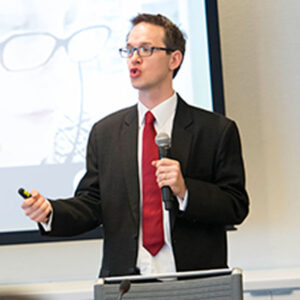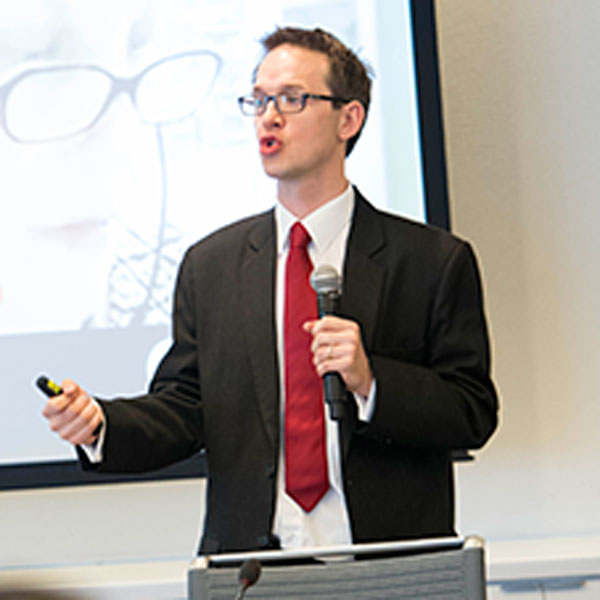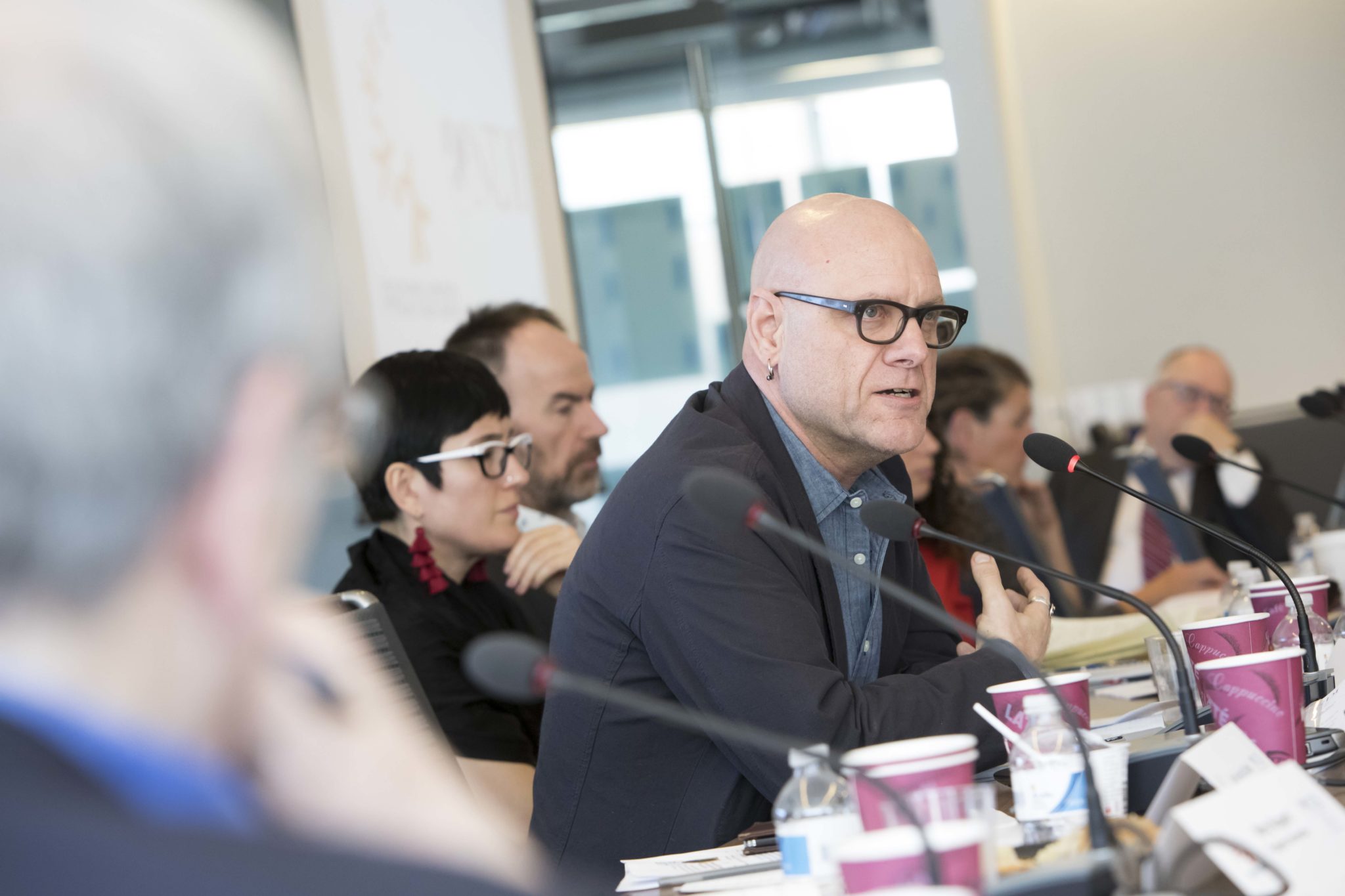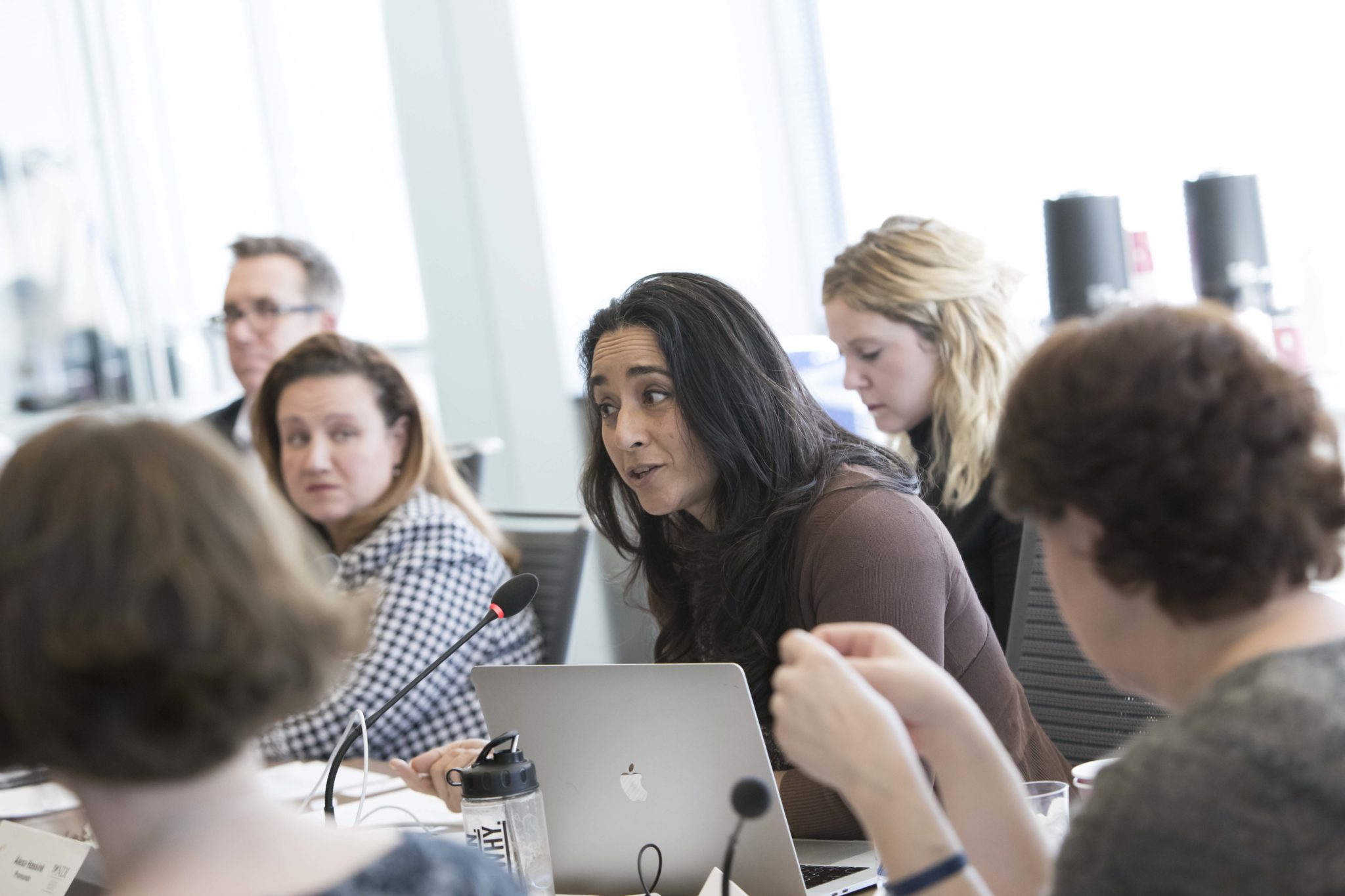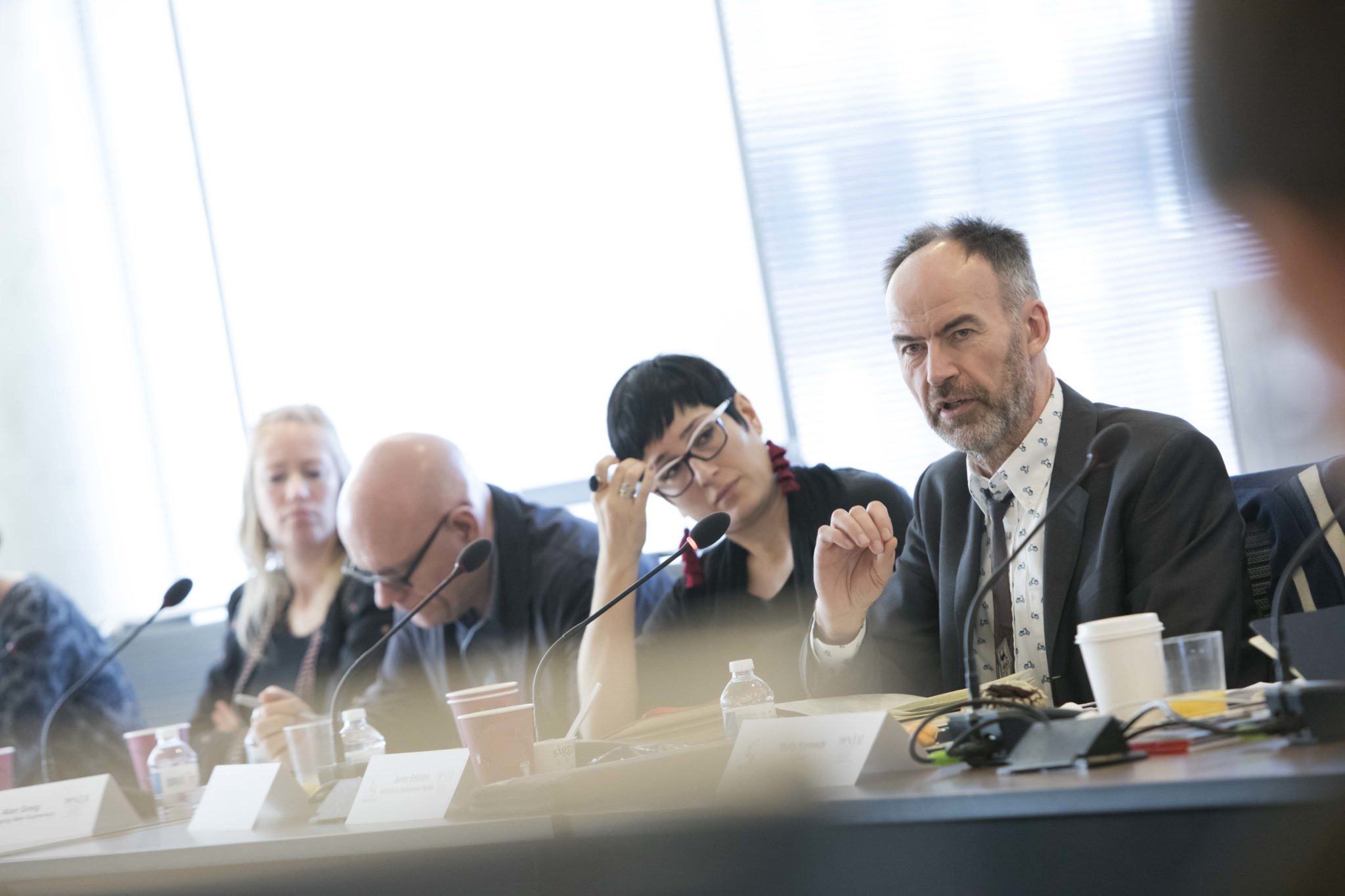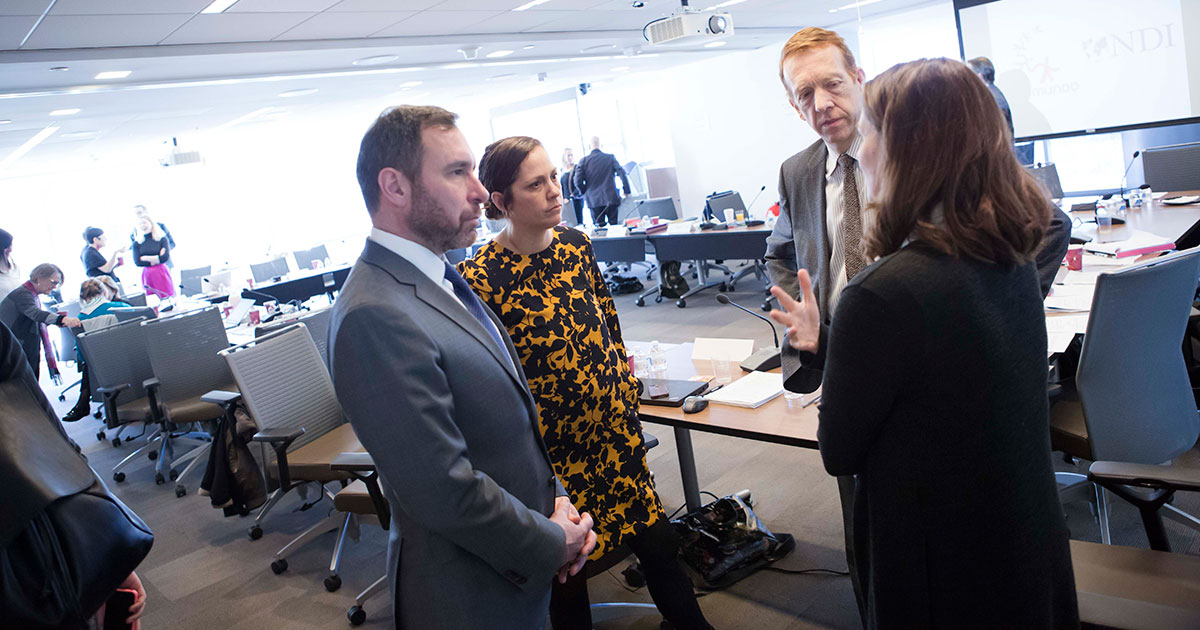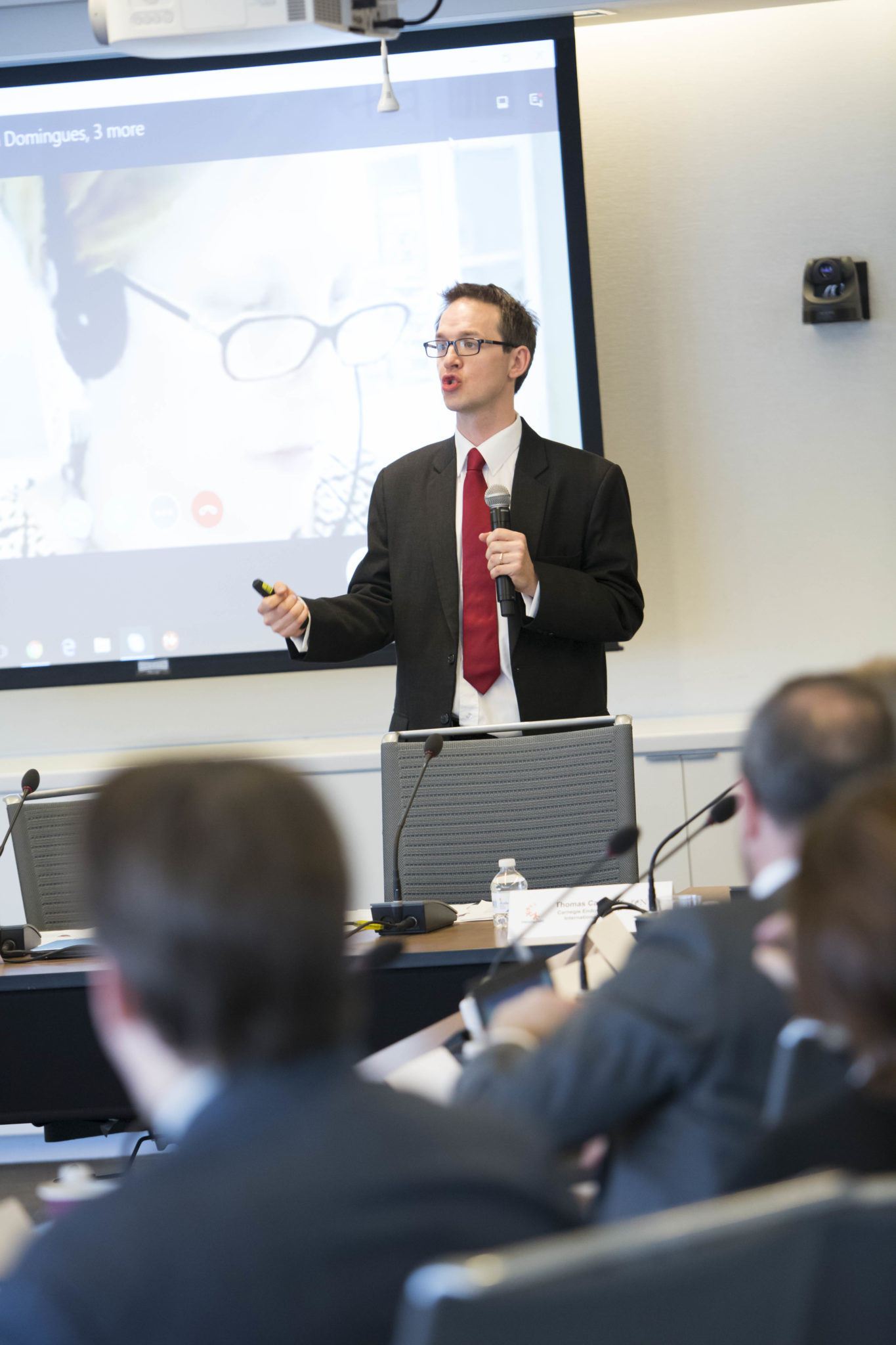By Caroline Hubbard, Senior Gender Advisor, NDI and Tim Shand, Vice President of Advocacy and Partnerships, Equimundo
The emergence of the #MeToo movement has led to an increase in the global dialogue on the problem of sexual violence and harassment, but there are still a wide variety of issues that need to be addressed in order for the movement to truly have a real and lasting impact for women and girls throughout the world.
Although violence impacting women across all industries, locales, and socio-economic groups is an egregious assault on their individual human rights, it is also a systemic problem rooted in and used to maintain unequal power relations between men and women. Nowhere is this more visible than in the testimonies and reports of violence against women in the political sector.
There are increasing reports from around the world indicating that as women step forward to claim their right to participate in politics, they are met by a backlash in terms of violence that encompasses harassment, psychological abuse (both in person and online), and physical or sexual assault. Such widespread attacks against politically active women is a clear indicator of the negative impact on the democratic health of our societies of entrenched and unequal gender norms – including those that apply to men.
In order to build on the work being done on challenging gender norms in other sectors – for example at community level or in private sector organizations – earlier this year Equimundo and the National Democratic Institute (NDI) hosted a landmark two-day roundtable discussion on “Masculinities and Politics: Examining Approaches to Securing Men’s Commitment to Gender Equitable Politics and Political Institutions.” The workshop aimed to bring together the approaches that Equimundo has developed over the last two decades on masculinities and violence, with the longstanding programmatic focus that NDI has had on removing the barriers – including violence – to women’s equal and active participation in politics.
Over the course of two days, 34 experts, including researchers, academics, and practitioners, as well as a range of different international organizations, from across the globe took part in a lively and robust discussion covering the impact of masculine gender norms on politics and decision-making, and the history, theory, research, and current practices around engaging men to achieve gender equality. The roundtable aimed to open a a dialogue on how current gender norms impact public policy processes, political institutions and structures, and on transforming the engagement of men–and particularly those in political leadership–into the action needed to promote and sustain inclusive, resilient democratic governance.
Gender equity and women’s empowerment continues to be perceived primarily as a “women’s issue.” However, the progress that has been made in women’s numerical representation in politics around the world over the last century, have often not translated directly into greater political influence and political parity remains a distant goal. In order for gender-equitable transformation to take place, men, and particularly male political leaders, cannot simply be allies but must be champions of the effort. However, approaches on how to engage men for gender equality in politics too often stop at recommendations for “gender-sensitive training” for male leaders or coaching for women on how to develop tactical alliances with male elites. Neither approach is grounded in analysis that unpacks the socio-cultural norms that create women’s disempowerment, how these will impact men’s support for women’s empowerment within a political context, or how such norms become institutionalized through the rules and processes of political organizations. Without this analysis, efforts to have men “speak up” for women’s rights, while important, do not take root as transformational norm change because they do not require men to question and understand how privilege and power operate in their own lives and in the spaces where they work; and they often displace women’s own agency which further reinforces the gender gap in power. Addressing the fallout of toxic gender norms on the quality of our politics and democratic culture, through engaging men – and particularly those in political leadership – is key to realizing the benefits of a more inclusive politics: more, and more equitable development, greater resilience, and sustainable peace.
The “Masculinities and Politics” roundtable represents a first step taken by NDI and Equimundo to bring together their related work to stimulate an interdisciplinary examination of the dynamic relationship between politics, power, and masculinities, and the routes to achieving gender norm change that leads to more inclusive political culture, processes and institutions. If the #MeToo and accompanying movements are really to signal a change in norms and our ambitions for a more gender-equitable world, rather than a more compliance-based change in our expectations of people’s behavior, then many more men will need to be brought to a realization of the gendered nature of privilege and power and the damage this does to our democracies and societies.
As NDI and Equimundo move forward, we hope that we can continue to raise awareness of the very specific nature of the challenge of transforming the political balance of power between women and men, and develop evidence-based approaches to engaging men as transformative agents of change in ending all violence against women and in the service of gender equality and stronger democracies.
